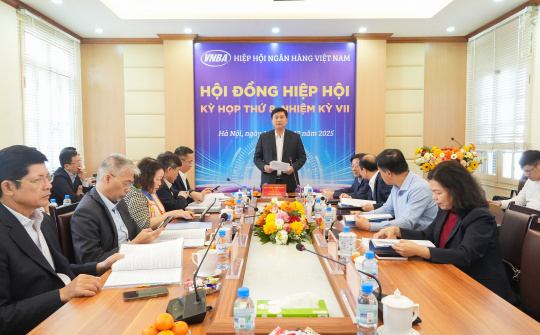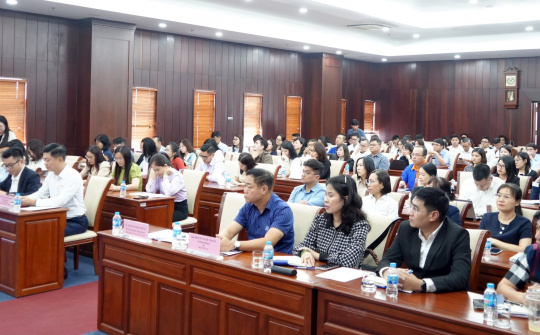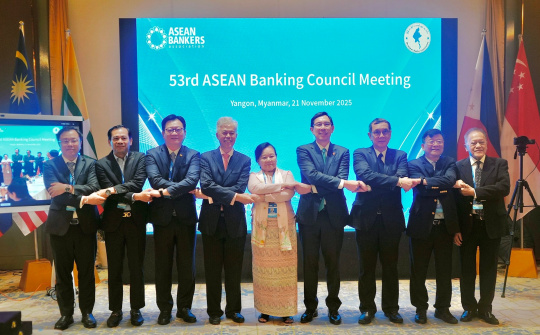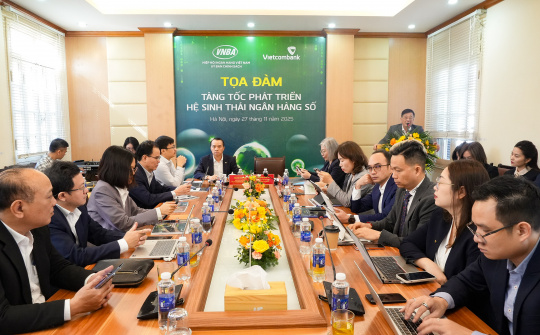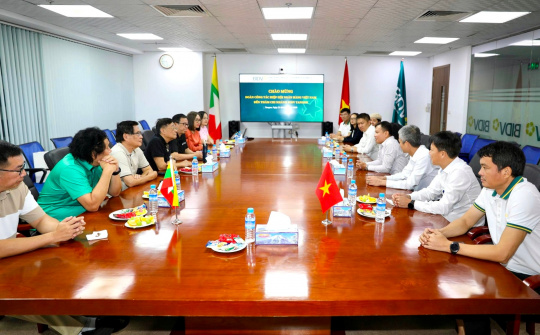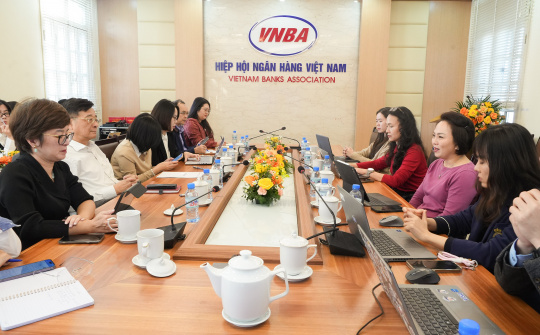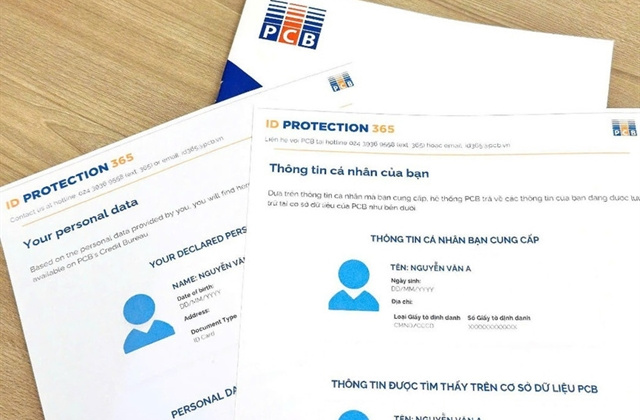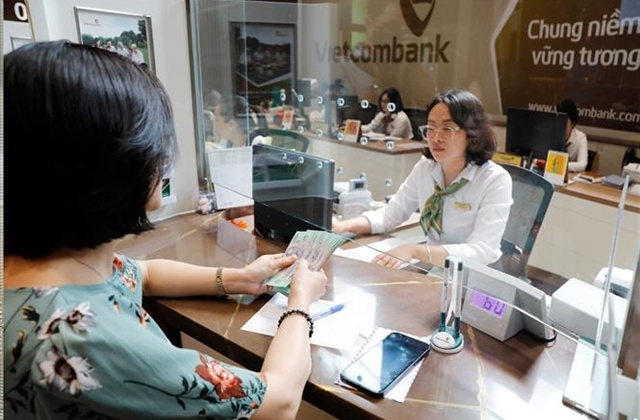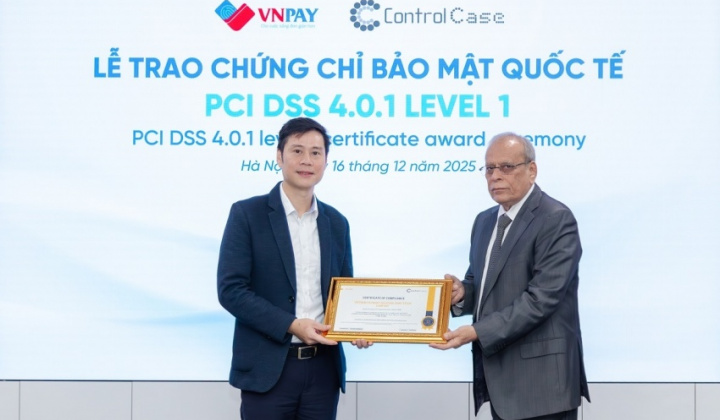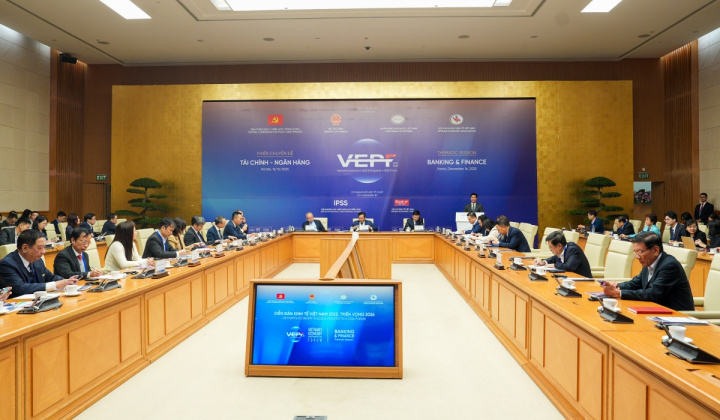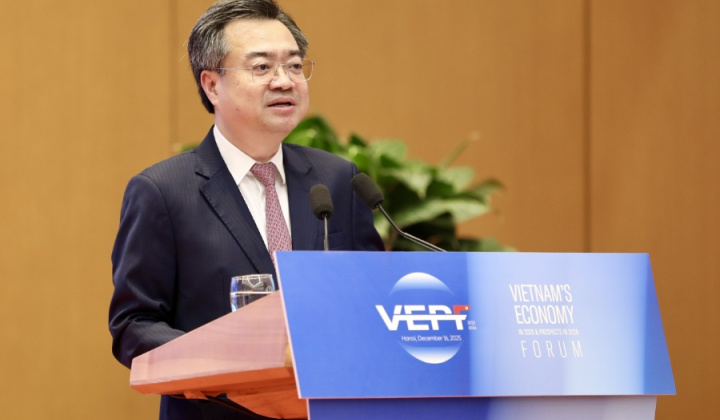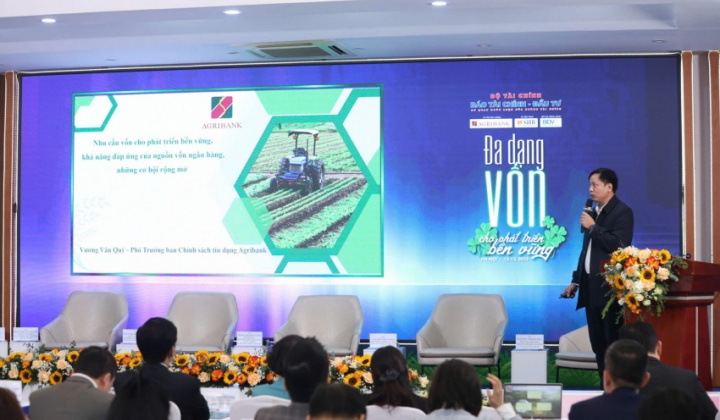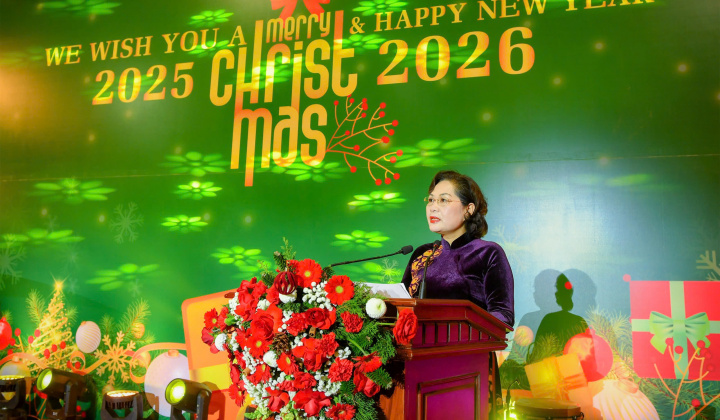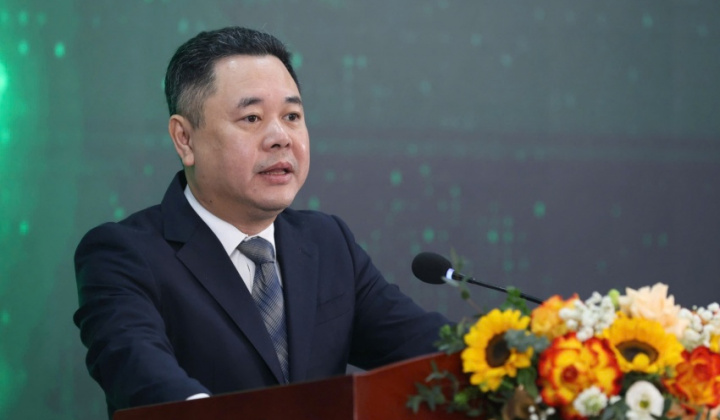The delegation was led by Ms. Justyna Pabian - Deputy Ambassador, Embassy of the Republic of Poland in Vietnam, together with Mr. Rafal Poborski - Ambassador, Head of Department, Asia-Pacific Department, Ministry of Foreign Affairs of Poland; Mr. Jacek Pitatkowski - Advisor, Department of International Cooperation and Trade, Ministry of Economic Development and Technology of Poland and representatives of Blik Payment Solution Company (Polski Standard Płatności).

On the VNBA side, there was Mr. Nguyen Thanh Son - Director of the Training Center, along with representatives of the Standing Committee's units.
At the beginning of the meeting, Ms. Justyna Pabian - Deputy Ambassador of the Republic of Poland in Vietnam said that on December 11-12, 2024, the Secretary of State of the Ministry of Foreign Affairs of the Republic of Poland, Mr. Wladyslaw Teofil will visit Vietnam to discuss and prepare for the upcoming visit to Poland by Vietnamese leaders. Therefore, the Polish Embassy delegation will have working sessions with a number of Vietnamese organizations and businesses to find potential areas of cooperation between the two countries, including finance and banking. Today's meeting is to discuss related issues of mutual interest.
Following Ms. Justyna Pabian, Mr. Rafal Poborski affirmed that, regardless of the field of cooperation, cooperation between banks plays an extremely important role. Therefore, the Polish side chose Blik Company (a leading Polish company in the field of payment technology) to introduce the Polish banking system, learn about the banking system in Vietnam as well as exploit the potential for cooperation between the two sides in this field.
According to the representative of Blik Company, this is a mobile payment system that allows users to make online and in-store purchases, as well as real-time money transfers between bank accounts and ATMs, including cash withdrawals from ATMs, without the need for a payment card. Transactions are uniquely identified by a 6-digit one-time code, valid for 2 minutes, generated and authenticated by the user in their mobile banking application. The code can then be entered online, on an ATM screen, or by the payee into their mobile app.
Payments are almost instantaneous; even between accounts from different banks. Some online shopping platforms, such as Allegro, can connect a customer account to a Blik-compatible version of their app, allowing payment confirmation using only a notification prompt and a PIN or biometric credentials.
Blik representatives added that more than three-quarters of transactions made with Blik are online payments, more than 9% are P2P transactions, slightly less are F2F transactions at terminals, and almost 7% are ATM withdrawals. BLIK has a dominant market share in the mobile payments market in Poland. Polski Standard Płatności (PSP) is the operator of BLIK. PSP was established in February 2015 by six Polish banks: PKO Bank Polski S.A., Alior Bank S.A., Bank Millennium S.A., ING Bank Śląski S.A., Bank Zachodni WBK S.A. (currently Santander Bank Polska S.A.) and mBank S.A. There are currently 16 banks providing Blik to their customers. Blik not only handles payment issues in Poland but also extends to other countries in Europe such as Slovakia, Romania... In 2023, the total number of Blik payment transactions in Poland will reach nearly 2 billion transactions.
Representative of the Standing Office of the Vietnam Banking Association, Mr. Nguyen Thanh Son - Director of the Training Center welcomed the delegation to visit and work with the Banking Association and expressed his appreciation for Blik's payment solution. Mr. Son also shared that the Vietnamese banking industry is in the process of rapid and strong digital transformation, in which technologies such as AI, Big Data, data applications... are of particular interest to the banking industry. In addition, it also pays great attention to related issues such as security, confidentiality, network security; digital signature, electronic signature and other practical issues such as green transformation, green finance, sustainable development, ESG...
Currently, the Vietnamese banking industry has been applying, and will continue to research to apply more deeply and expand technological solutions in payment activities. The application of security technologies such as AI and Blockchain is an important part of protecting the system and payment services of banks. These systems not only help prevent fraud but also enhance security, especially in cross-border transactions.
In the fintech sector, Vietnamese fintech companies are developing strongly and have a great influence on credit institutions. Currently, many fintech companies are active members of the Vietfintech Club (under VNBA). In addition to the above issue, VNBA also wishes to increase exchanges and cooperation between the two sides on international cooperation activities, training, etc.
Mr. Son also suggested that in order to have more basis for cooperation, the two sides need to have exchanges and discussions at higher levels such as between the two central banks, bilaterally between the two governments.
At the end of the working session, the Polish Embassy delegation sincerely thanked the reception and useful information from VNBA, and expressed the hope that the two sides will continue to have close and effective cooperation activities in the future.
VNBA News


